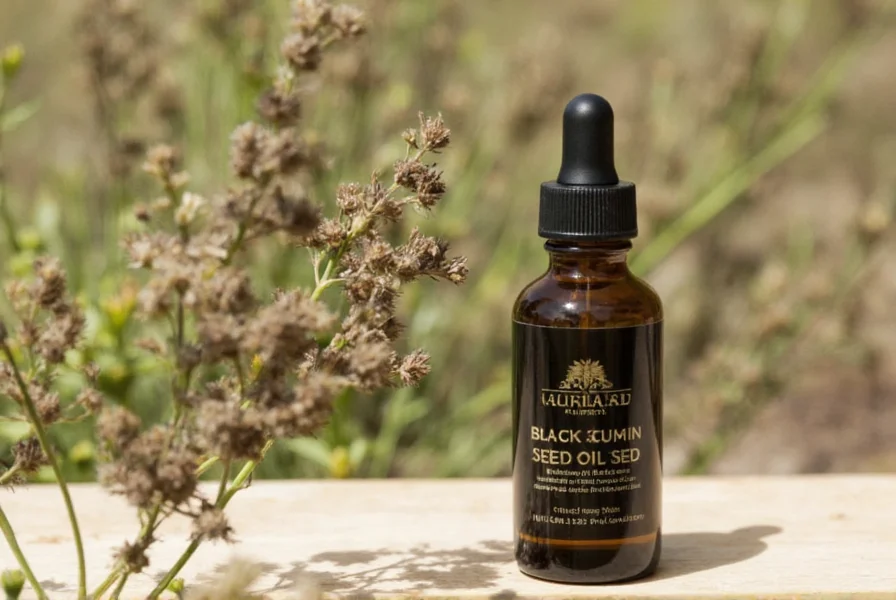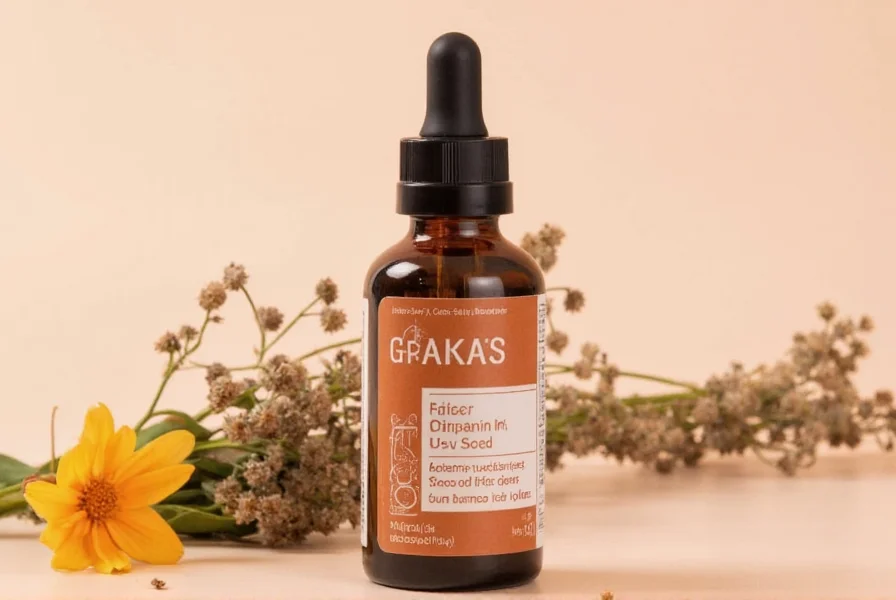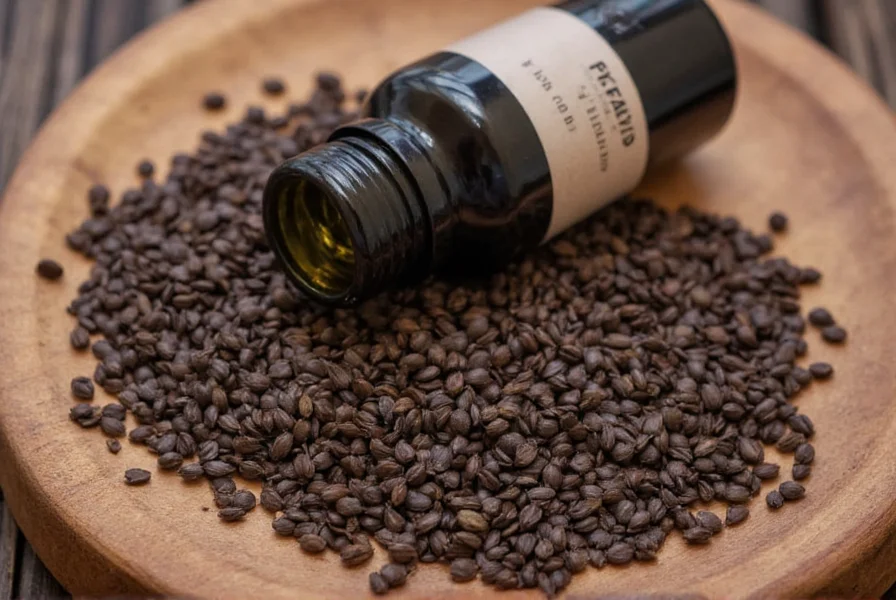Black cumin seed oil, scientifically known as Nigella sativa oil, has been used for centuries in traditional medicine systems across the Middle East and Asia. This distinctive oil contains approximately 0.5-1.5% thymoquinone, the compound responsible for many of its studied biological activities. Unlike regular cumin (Cuminum cyminum), black cumin belongs to a different botanical family and offers unique phytochemical properties that have attracted significant scientific interest in recent decades.
Historical Context and Traditional Applications
Archaeological evidence shows black cumin seeds were found in Egyptian pharaohs' tombs, including Tutankhamun's burial site, suggesting historical medicinal importance. Traditional Persian and Ayurvedic medicine systems have documented uses for respiratory conditions, digestive issues, and skin disorders. Ancient Greek physicians like Dioscorides referenced its use for headaches and nasal congestion. Understanding these historical applications provides context for modern scientific investigation into black cumin seed oil benefits for skin and other potential therapeutic areas.
Chemical Composition and Active Compounds
The therapeutic potential of black cumin seed oil primarily stems from its complex chemical profile. Thymoquinone represents the most researched component, but the oil also contains:
| Compound | Natural Concentration | Primary Properties |
|---|---|---|
| Thymoquinone | 0.5-1.5% | Antioxidant, anti-inflammatory |
| dithymoquinone | 0.1-0.3% | Antimicrobial properties |
| Thymohydroquinone | Trace amounts | Neuroprotective potential |
| Essential fatty acids | 30-40% (linoleic, oleic) | Skin barrier support |
This synergistic combination contributes to the oil's multifaceted biological activities. Research published in the Journal of Ethnopharmacology (2022) demonstrated that whole oil extracts often show greater efficacy than isolated thymoquinone, suggesting important entourage effects between components.
Scientifically Supported Health Applications
Rigorous clinical research on black cumin seed oil remains limited but growing. Current evidence suggests potential benefits in several areas:
Skin Health Applications
Multiple studies indicate black cumin seed oil benefits for skin conditions. A 2021 randomized controlled trial in Dermatology and Therapy found that topical application significantly improved symptoms of hand eczema compared to placebo. The oil's anti-inflammatory properties make it particularly relevant for inflammatory skin conditions. When considering how to use black cumin seed oil for hair, research suggests potential benefits for scalp health and hair growth stimulation through improved circulation.

Respiratory Support
Several clinical trials have examined black cumin seed oil for respiratory conditions. A meta-analysis in Complementary Therapies in Medicine (2023) reviewed 12 studies involving over 800 participants with allergic rhinitis. Results showed significant improvement in nasal symptoms and quality of life measures compared to control groups. The oil appears to modulate immune responses without the sedative effects common in conventional antihistamines.
Metabolic Health Considerations
Research on black cumin seed oil for diabetes management shows promising but preliminary results. A 2022 systematic review in Nutrition Reviews analyzed 17 clinical trials and found modest improvements in fasting blood glucose and HbA1c levels. However, the authors noted significant variability in study quality and called for larger, more rigorous trials. Individuals taking diabetes medications should exercise caution due to potential additive effects.
Usage Guidelines and Safety Profile
Proper usage of black cumin seed oil requires understanding appropriate methods and potential risks:
Topical Application
For skin applications, dilute black cumin seed oil with a carrier oil (1-5% concentration). Perform a patch test 24 hours before broader application. This approach minimizes risks while maximizing black cumin seed oil benefits for skin. Avoid contact with eyes and mucous membranes.
Oral Consumption
When taken orally, typical doses range from 1-3 mL daily, though clinical studies have used varying amounts. Start with lower doses to assess tolerance. Consult healthcare providers before using black cumin seed oil supplements, especially if managing chronic conditions or taking medications.
Safety Considerations
While generally well-tolerated, black cumin seed oil may cause:
- Mild gastrointestinal discomfort at higher doses
- Increased bleeding risk when combined with anticoagulants
- Potential interactions with diabetes medications
- Rare allergic reactions, particularly in individuals sensitive to plants in the Ranunculaceae family
Pregnant women should avoid therapeutic doses due to potential uterine stimulation effects observed in animal studies. Always discuss black cumin seed oil side effects with healthcare providers before starting regular use.
Quality Assessment and Selection Criteria
Not all black cumin seed oil products deliver equivalent quality. Consider these factors when evaluating options:
- Extraction method: Cold-pressed oils retain more active compounds than solvent-extracted varieties
- Thymoquinone content: Reputable brands provide third-party testing results
- Color and aroma: High-quality oil ranges from golden to deep amber with a distinctive spicy aroma
- Storage conditions: Look for oils packaged in dark glass bottles to prevent light degradation

Current Research Limitations and Future Directions
While promising, existing research on black cumin seed oil has significant limitations. Many studies use small sample sizes, short durations, or animal models that don't directly translate to human applications. The variability in oil composition based on growing conditions and extraction methods complicates research comparisons. Future high-quality randomized controlled trials with standardized preparations will provide more definitive evidence about optimal usage and efficacy for specific conditions.
Conclusion
Black cumin seed oil represents a fascinating intersection of traditional medicine and modern scientific investigation. Current evidence supports selective applications, particularly for skin health and respiratory support, while other potential benefits require further validation. When considering how to use black cumin seed oil, prioritize safety, quality, and realistic expectations based on current scientific understanding. Consult healthcare professionals before using black cumin seed oil for therapeutic purposes, especially when managing existing health conditions or taking medications.
What's the difference between black cumin seed oil and regular cumin?
Black cumin (Nigella sativa) belongs to the Ranunculaceae family, while regular cumin (Cuminum cyminum) is in the Apiaceae family. They have different chemical compositions, with black cumin containing thymoquinone as its primary active compound. Black cumin seed oil has distinct medicinal properties not found in regular cumin oil.
How should I store black cumin seed oil to maintain potency?
Store black cumin seed oil in a dark glass bottle in a cool, dark place. Refrigeration after opening extends shelf life. Properly stored oil maintains potency for 12-18 months. Exposure to light, heat, or air accelerates degradation of thymoquinone and other active compounds.
Can black cumin seed oil help with hair growth?
Some research suggests black cumin seed oil may support hair health through improved scalp circulation and anti-inflammatory effects. A 2020 study in Journal of Cosmetic Dermatology showed improved hair density after 3 months of topical application. However, more rigorous studies are needed to confirm these effects and establish optimal usage protocols for how to use black cumin seed oil for hair.
What scientific evidence supports black cumin seed oil benefits for skin?
Multiple clinical studies demonstrate black cumin seed oil's anti-inflammatory and antimicrobial properties benefit various skin conditions. A 2021 randomized trial showed significant improvement in hand eczema symptoms. Research indicates it may help with acne, psoriasis, and atopic dermatitis through modulation of inflammatory pathways and support of skin barrier function.
Are there any medication interactions I should know about?
Yes, black cumin seed oil may interact with certain medications. It can enhance the effects of blood thinners like warfarin, potentially increasing bleeding risk. The oil may also lower blood sugar, requiring medication adjustments for diabetes patients. Always consult your healthcare provider before using black cumin seed oil if you take prescription medications, especially anticoagulants or diabetes drugs.











 浙公网安备
33010002000092号
浙公网安备
33010002000092号 浙B2-20120091-4
浙B2-20120091-4